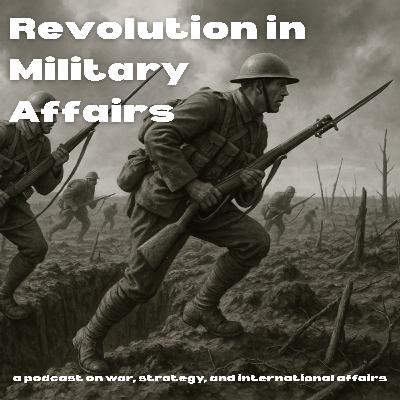Revolution in Military Affairs
Subscribed: 48Played: 1,998
Subscribe
© Amos Fox
Description
Revolution in Military Affairs explores military innovation and modern warfare's evolution. Revolution in Military Affairs adheres to the position that the science of war exceeds the bounds of ideology. As such, Revolution of Military Affairs promotes the marketplace of ideas, and not just the advocacy of preferential thinking. Revolution in Military Affairs emphasizes military theory, dissecting wisdom from strategic minds that guide war. We discuss its relevance to today's challenges. Join us for conversations with experts and leaders, scrutinizing pressing issues from geopolitics to policies shaping armed conflict. Whether a strategist or theory enthusiast, we're your compass in navigating warfare and global strategy. Subscribe now to uncover the future of armed conflict and military theory's wisdom.
Hosted on Acast. See acast.com/privacy for more information.
115 Episodes
Reverse
Comments






